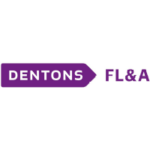-
What are the principal sources of laws and regulations relating to shareholder rights and activism? Do insider trading and/or market abuse rules apply to activist activity?
The principal source of law governing shareholder rights and activism is the Companies Law, Cap. 113, which sets out the rights of shareholders in both public and private companies. The law regulates matters such as voting rights, general meetings, directors’ duties, and shareholder remedies, which are particularly relevant in the context of activist campaigns. Additionally, for public companies listed on the Cyprus Stock Exchange or on regulated markets operating in Cyprus under the freedom to provide services within the EU, the Cyprus Securities and Exchange Commission (CySEC) oversees compliance with the laws governing their operation and their corporate governance standards.
Additional key legislation includes the Transparency Requirements (Securities Admitted to Trading on a Regulated Market) Law 190(I)/2007 (the “Transparency Requirements Law”), which establishes clear reporting obligations for any issuer, whether an individual or a legal entity, private or public, whose securities are listed and traded on regulated market in Cyprus. Furthermore, the Public Takeover Bids for the Acquisition of Securities of Companies and Related Matters Law 41(I)2007 (the “Takeover Bids Law”), governs public takeover bids involving companies registered in Cyprus (or, in some cases where certain legislative conditions are met, foreign companies whose securities are traded on a regulated market in Cyprus), including provisions on mandatory bids, disclosure obligations, and the rights of minority shareholders.
Lastly, the Market Abuse Regulation (EU) No. 596/2014 (MAR), implemented in Cyprus through Law 102 (I)/2016, prohibits insider dealing, unlawful disclosure of inside information and market manipulation. These rules are particularly relevant in the context of shareholder activism where trading and selective disclosures may occur.
-
How is shareholder activism viewed in your jurisdiction by regulators, shareholders (both institutional and retail) and the media?
Shareholder activism is still relatively nascent in Cyprus but is increasingly recognized as a legitimate form of shareholder engagement. Regulators generally treat it with neutrality, provided all legal and regulatory obligations are met. Institutional investors are more familiar with activism practices, while retail investors are typically less engaged. The media coverage is limited but generally objective.
That said, in the aftermath of the 2013 banking crisis, marked by deposit haircuts and the bail-in of bondholders, shareholder mobilisation took a more public and coordinated form. Large depositors and bondholders initiated legal actions, challenged regulatory decisions and sought policy engagement in efforts to recover losses and influence the post-crisis restructuring process. While this is not shareholder activism in the traditional sense, the incident demonstrated how financial shareholders can collectively assert influence in exceptional circumstances.
-
How common are activist campaigns and what forms do they take? Is activism more prevalent in certain industries? If so why?
Shareholder activism in the sense of public campaigns by shareholders to influence corporate strategy, governance, or financial policy, is still relatively uncommon in Cyprus. However, and as elaborated below, a notable and more frequent form of shareholder assertion comes through litigation, particularly derivative actions and petitions under section 202 of the Companies Law, Cap. 113.
These proceedings, often initiated by minority shareholders in response to alleged misconduct, oppression, or governance failures, reflect a form of activism through legal means. While they may not involve public campaigns as seen in larger markets, such actions are a common and impactful method for shareholders to assert their interests, influence company behavior, and challenge decisions of directors or controlling shareholders.
Activism in Cyprus therefore often takes a legalistic and reactive form rather than a strategic or public one. It is typically triggered by internal disputes within closely-held companies, rather than coordinated action by institutional investors or hedge funds in public markets.
There is no strong sector-specific pattern, though shareholder disputes and activism-related litigation are somewhat more prevalent in closely-held companies, family-run businesses, and real estate or investment holding structures, where ownership and management are often intertwined. In such contexts, minority protections are more frequently challenged, often involving allegations of misappropriation of assets or decisions made in breach of fiduciary duties.
-
How common is it for shareholders to bring litigation against a company and/or its directors and what form does this take?
Typically, shareholder litigation in Cyprus arises in cases involving minority shareholder oppression or breaches of fiduciary duties by directors. In such situations, shareholders may bring different types of legal actions depending on the nature of the dispute.
A minority shareholder might bring a derivative action, filed on behalf of the company, to address any wrongdoing by the directors or the controlling shareholders, such as misappropriation of assets. The alleged wrong or breach of duty must be one that cannot be ratified by a simple majority of shareholders.
Under the Civil Procedure Rules 2023, a derivative claim cannot proceed without court permission. No priori court permission is required for filing an application for urgent interim relief in the context of a derivative claim. Leave to continue will only be granted where the court is satisfied that a prima facie case is established, a threshold higher than the “seriously arguable case”. The claim must fall within one of the exceptions to the rule in Foss v Harbottle, the most significant being where the wrongdoing amounts to fraud or that the directors either committed a deliberate or dishonest breach of duty or obtained an improper benefit but not necessarily a financial one.
The court considers whether in the absence of an answer from the defendant, the claimant would be entitled to judgment. At this preliminary stage, where the facts are disputed, the claimant’s evidence prevails. As confirmed in McGaughey v Universities Superannuation Scheme Ltd [2022] EWHC 1233 (Ch) and Bhullar v Bhullar [2015] EWHC 1943 (Ch), both of which are likely to be followed by the Cyprus Courts, a prima facie case may still be established even if at trial the claim would ultimately fail should the defendant’s evidence be accepted.
Minority shareholders in Cyprus are also afforded statutory protection under section 202 of the Companies Law, Cap. 113 which provides relief where the company’s affairs are conducted oppressively towards a member. In such cases, the minority shareholder may file a petition for relief and must show that the company’s conduct has been oppressive and that it would be just and equitable to wind up the company where there is no alternative, less drastic remedy available under section 202. The term “oppression” is not limited to overt misconduct but may take various forms, often reflecting a lack of probity and fair dealing in the conduct of the company’s affairs to the detriment of certain members. A mere loss of confidence in management, dissatisfaction with company decisions or being consistently outvoted at meetings will not establish oppression within the meaning of section 202.
Furthermore, shareholders may also bring a personal action against the company for wrongs done to them in their capacity as shareholders where their personal rights under the company’s constitution or as otherwise protected by law are infringed. However, the shareholder cannot proceed with an action for loss which is merely a reflection of the loss suffered and recoverable by the company.
-
What rights do shareholders/activists have to access the register of members?
Under Article 108 of the Companies Law, Cap.113, shareholders have the right to inspect the company’s register of members and the related index of names during its business hours, subject to any reasonable restrictions imposed by the company. This right applies for at least two hours each working day and is free of charge for shareholders. Shareholders or other parties may also request copies of the register (or parts thereof), subject to a small fee. If the company fails to permit inspection or supply copies within ten days, the company and any responsible officer may face fines. The court may further issue and order compelling immediate inspection.
-
What rights do shareholders have to requisition a shareholder meeting and to table a resolution at the meeting?
Shareholders holding at least 10% of the company’s paid-up share capital carrying voting rights (or 5% for listed companies) may requisition an extraordinary general meeting by submitting a written request stating the purposes of the meeting, including any proposed resolution intended to effect changes in the company (Article 126 of the Companies Law, Cap.113).
The directors must act within 21 days to convene the meeting. If they fail to do so, the requisitioning shareholders may call the meeting themselves. While the statute is silent on a separate “right to table a resolution”, (i.e., to formally propose a resolution for consideration), in practice, proposed resolutions can be included in the requisition notice—especially when shareholders are the convenors of the meeting. Any proposed special resolutions must comply with the notice and majority requirements under Article 135.
If the shareholders are seeking to include a resolution in an already convened meeting they did not requisition, then the rights are more limited and often depend on the articles of association.
-
Where a shareholder requisitions a meeting, who is responsible for the costs of calling and holding the meeting?
Pursuant to Article 126 (5) of the Companies Law, Cap. 113, any reasonable expenses incurred by the shareholders in convening an extraordinary general meeting—after the directors failed to act on a valid requisition—must be reimbursed by the company. These costs may subsequently be recovered by the company from the directors responsible for the failure to convene the meeting, typically by withholding amounts due to them in the form of fees or other remuneration.
This provision functions both as a protective mechanism for active shareholders and a disciplinary measure against passive or obstructive boards, effectively supporting shareholder-driven governance action in appropriate circumstances.
-
Are there any rights to circulate statements to shareholders?
Yes, shareholders in Cyprus have the right under Article 134 of the Companies Law, Cap. 113, to require the company to circulate a proposed resolution and an accompanying statement of up to 1,000 words to members entitled to receive notice of a general meeting. This right may be exercised by shareholders representing at least 5% of the total voting rights at the relevant meeting, or alternatively, by 100 or more shareholders holding shares on which an average of at least EUR. 171 has been paid up by each one of them.
The request must be made in writing, signed by the requisitioning shareholders, and submitted to the company’s registered office. It must also be accompanied by payment or an offer to cover the company’s reasonable expenses incurred in effecting the circulation, unless the company determines otherwise. In the case of a proposed resolution, the request must be submitted at least six weeks prior to the meeting; for any other supporting statement, the deadline is one week prior to the meeting. The company may refuse to circulate the material only if a court is satisfied that the request amounts to an abuse of the process, for example, by seeking to generate unnecessary publicity around defamatory content.
A failure by the company to comply with its obligations under this provision may expose the responsible officers to a fine of up to EUR. 1,281.
-
Who is entitled to attend and speak at a shareholders’ meeting?
The right to attend and speak at a shareholders’ meeting belongs to the registered members of the company, as recorded in the register of members under Article 105 of Cap. 113. Shareholders may attend in person or through a proxy appointed pursuant to Article 130, who is entitled to speak and vote on their behalf.
Other individuals—such as directors, company secretaries, or auditors—may be present, but they do not have a statutory right to speak unless permitted under the articles of association or invited by the chair.
In companies where shares are held through nominees, the beneficial owner typically participates through the registered holder, subject to the company’s internal rules.
-
What percentage of share capital is needed to appoint or remove a director? What is the process?
Under Article 178 of Cap. 113, a director may be removed by an ordinary resolution, which requires a simple majority of votes cast at a quorate general meeting.
Shareholders must give special notice of the proposed resolution at least 28 days in advance, and the director has a right to be heard and to submit written representations.
The appointment of a director is also generally made by ordinary resolution, unless the articles of association provide otherwise. It is important to distinguish this from the quorum requirement, which determines whether the meeting can proceed and is typically defined in the articles—often as two shareholders. Once quorum is met, the relevant voting thresholds apply to the resolutions under consideration.
-
What percentage of share capital is needed to block a shareholder resolution?
This depends on the type of resolution proposed. An ordinary resolution requires a simple majority, namely 50% of the votes to pass, can be blocked by shareholders holding just over 50% of the votes at the meeting. In contrast, a special resolution requires at least 75% of the votes to be approved. Accordingly, shareholders holding more than 25% of the votes (i.e., at least 25.1%) can block it.
-
Do holders of other instruments (e.g. options, warrants, contracts for difference, swaps, cash-settled derivatives) have any of the above rights?
No, holders of other instruments such as options, warrants, contracts for difference (CFDs), swaps, or cash-settled derivatives do not enjoy the shareholder rights described above. These rights, including the right to access the register of members, requisition and attend general meetings, table resolutions, vote, or appoint and remove directors, are conferred exclusively on registered shareholders, i.e. those whose names appear in the company’s register of members under Article 105 of Cap. 113.
Holders of derivatives or similar financial instruments do not acquire any of the corporate governance rights available to shareholders under Cap. 113 unless they exercise those instruments and are registered as members in the company’s register of members. Even where such instruments provide economic exposure equivalent to share ownership and may have regulatory obligations relating to transparency or market conduct; however, they do not confer legal shareholder status.
-
Is stamp duty payable on share acquisitions? Can this be avoided/mitigated (e.g. through use of derivatives)?
Stamp duty is generally payable on share transfer instruments executed in Cyprus, in accordance with the Stamp Duty Law, Cap. 219. Specifically, the obligation arises on the written instrument evidencing the transfer of shares rather than the acquisition itself, and the duty is typically borne by the purchaser (Section 29(e)). The applicable rate is determined ad valorem and may vary depending on the consideration stated.
There is no general exemption for intra-group reorganisations, and such transactions are not automatically exempt from stamp duty unless they involve listed securities covered under the exemption for the transfer of securities listed on a recognised stock exchange.
As for derivative instruments such as contracts for difference (CFDs), swaps, or options, these do not, in themselves, attract stamp duty unless they are reduced to writing in a form that constitutes a dutiable instrument under the Stamp Duty Law (e.g. a transfer, sale, or assignment of rights over securities). Generally though, any structuring to avoid stamp duty through the use of synthetic instruments should be approached with caution, and specialised legal advice is essential to assess whether a document or arrangement may be caught by the legislation.
-
To what level can you acquire shares without having to publicly (or privately) disclose your position?
In the case of public companies whose shares are admitted to trading on a regulated market in Cyprus or in another EU Member State, an investor may acquire shares up to a 5% threshold of the voting rights without triggering a disclosure obligation. According to Article 28 of the Transparency Requirements Law, subject to further provisions, an investor who acquires or disposes of shares with voting rights in an issuer must notify the issuer and the relevant competent authority, either the Cyprus Securities and Exchange Commission (CySEC) (if Cyprus is the home member state) or the authority of another member state, when their holding, as a result of the transaction, reaches, exceeds, or falls below the thresholds of 5%, 10%, 15%, 20%, 25%, 30%, 50%, or 75% of the issuer’s total voting rights. Notification must be done without delay and in any event within 3 trading days.
However, Section 29 of the Transparency Requirements Law provides that certain holdings are exempt from disclosure, including: shares held temporarily for clearing and settlement purposes (within three working days); custodians acting strictly on instructions from the beneficial owner; market makers and trading book positions of investment firms, provided they do not exceed 5% and are not used to influence the issuer’s management; and temporary acquisitions by members of the European System of Central Banks in the context of monetary policy or liquidity operations. Additionally, shares acquired solely for price stabilisation under EU Regulation 2273/2003 are also exempt, so long as voting rights are not exercised.
Therefore, while any acquisition up to 5% of voting rights generally avoids mandatory disclosure, holdings that fall within the Section 29 exemptions may, under certain conditions, remain non-disclosable even when the 5% threshold is exceeded.
-
Is the disclosure threshold different if the issuer is subject to a takeover offer?
Indeed, the disclosure thresholds do become more stringent if the issuer is subject to a takeover offer.
According to Article 26 (1) (a) of the Takeover Bids Law, during the takeover bid period, the offeror, any person holding 5% or more of voting rights, and any person acting in concert must announce immediately every acquisition of securities in the offeree or offeror company, including price and existing voting rights.
Furthermore, Article 26(1)(b) of the Takeover Bids Law further provides that, anybody acquiring a percentage equal to half per cent (0,5%) or greater of the voting rights of the offeree company or the offeror, must make an immediate announcement of that acquisition, along with price and related voting rights.
-
Are there any rules which restrict the speed at which you can build a position?
Cyprus law does not impose a specific restriction on the speed at which a shareholder may acquire shares in a company. However, as far as listed companies are concerned, there are regulatory obligations that effectively limit how quickly or discreetly a position can be built. As mentioned above, under the Transparency Requirements Law, investors must disclose acquisitions that cross specific thresholds (e.g. 5%, 10%, etc.) within three trading days, making it difficult to accumulate significant positions without disclosure and public awareness.
Separately, while Regulation (EU) No. 596/2014 on Market Abuse (MAR) does not restrict the speed of acquisition per se, it prohibits insider dealing and market manipulation. The concern that a party may secretly acquire a significant stake to influence control or pricing without disclosing its intentions falls directly within the scope of Article 12 and 21 of MAR.
Additionally, always in the context of listed companies, if an investor builds a position that reaches or exceeds 30% of voting rights, the Takeover Bids Law triggers a mandatory takeover offer obligation.
Thus, while there is no express restriction on acquisition speed, MAR and the Transparency Law together create a legal environment where secrecy, timing, and intent are heavily scrutinised, limiting the practical ability to rapidly build a position without regulatory consequences.
-
Are there circumstances in which a mandatory takeover is required?
A mandatory takeover bid is required when a person, or persons acting in concert with them, acquires control of a company listed on a regulated market by holding 30% or more of its voting rights. Such a person is required to immediately make a bid to all the holders of the remaining securities for all their holdings at an equitable price (Article 13 of the Takeover Bids Law).
-
Does collective shareholder action or ‘acting in concert’ have any consequences in your jurisdiction (e.g for disclosure purposes or the rules on mandatory offers)?
Yes, as mentioned above, under Cyprus law, the concept of acting in concert has significant consequences, particularly in the context of takeover regulation and disclosure obligations relating to listed companies.
For the purposes of the Takeover Bids Law, “persons acting in concert” are defined in Section 2 as those who cooperate, based on an agreement (express or tacit, oral or written), with the aim of acquiring control of the offeree company or frustrating the success of a takeover bid. The shareholdings of such persons are aggregated for the purposes of determining whether the 30% threshold for triggering a mandatory public offer has been met under Section 13(1). This means that coordinated action by multiple shareholders, even if none of them individually holds 30%, may still result in a mandatory offer obligation if, in aggregate, they reach or exceed the control threshold.
Although Cap. 113 (Companies Law) does not contain a general doctrine of acting in concert, coordinated shareholder action may also raise issues under shareholder agreements or under the company’s articles of association, especially where voting blocks are used to influence governance decisions.
Furthermore, while the Transparency Requirements Law does not explicitly refer to “acting in concert,” it does require the aggregation of voting rights and financial instruments that are held or controlled indirectly, such as through subsidiaries or contractual arrangements. Although coordination between shareholders alone does not automatically trigger disclosure, in practice, where such cooperation results in a material concentration of influence, disclosure may be expected to ensure market transparency, in line with EU regulatory principles and evolving market practice.
-
Do the same rules and thresholds apply to other instruments (e.g. options, warrants, short positions, contracts for difference, swaps, cash-settled derivatives)?
Yes. Under Cyprus law, many derivatives and synthetic positions are treated similarly to direct shareholdings for disclosure purposes, ensuring that economic influence over a listed issuer is subject to transparency. The Transparency Requirements Law extends disclosure obligations beyond direct holdings to include financial instruments, whether physically or cash-settled, that grant a right or opportunity to acquire voting shares.
Section 31, implementing Article 13 of the Transparency Requirements Law, covers options, warrants, futures, swaps, and contracts for difference (CFDs), even where no immediate transfer of shares occurs. These instruments create a synthetic stake, meaning economic exposure to a company’s shares without legal ownership. Their holdings must be aggregated with direct holdings when calculating whether thresholds (e.g. 5%, 10%) have been crossed.
Short positions, however, are not subject to disclosure under the Transparency Requirements Law. Instead, they are regulated separately under EU Regulation 236/2012 on Short Selling, which requires notification to CySEC and ESMA once certain thresholds (e.g. 0.1%, 0.2%) are reached.
-
If an activist makes a takeover offer, what impact might any prior share purchases have on the minimum offer price or the form of consideration that must be offered?
Under Article 18(1) of the Takeover Bids Law, if an investor/activist makes a takeover offer for a company listed on a regulated market in Cyprus, the minimum offer price must match the highest price paid by the offeror, or any concert party, for the same class of securities within the 12 months preceding the offer’s announcement. This upholds the principle of equal treatment under Article 5(a), ensuring existing shareholders receive no less favourable terms than earlier purchasers. In voluntary offers, CySEC may permit a lower price under Article 18(2), but only in limited circumstances.
As to the form of consideration, Article 16 of the Takeover Bids Law allows the offeror to propose cash, securities, or a combination. However, if the offeror or any concert party has acquired at least 5% of the target’s voting rights using cash within the preceding 12 months, a cash alternative must be offered. This protects shareholders from being forced to accept less liquid or riskier consideration.
-
What measures are available to companies to protect against an activist campaign?
There are several measures that companies may take to protect against an activist campaign, primarily through strong corporate governance and proactive engagement.
Maintaining a clear and transparent corporate strategy, combined with regular communication with shareholders helps build trust and ensures alignment with shareholders’ expectations.
Companies should ensure that their board is composed of experienced and independent members, and that decision-making processes are well-documented and defensible. It is also important to monitor shareholder activity across the market and remain alert to emerging activist trends or tactics.
Regular evaluation of the company’s capital structure and investment performance is also essential so that any possible reserves can be returned to shareholders through dividends when appropriate.
-
What duties do directors owe to a company and its shareholders? Highlight any that are particularly relevant in the context of an activist campaign.
Directors have common law fiduciary duties to act in good faith and in the best interests of the company as a whole. They must exercise independent judgment and make decisions based on what they reasonably believe will benefit the company in the long term. Additionally, directors are required to act with care, skill, and diligence, ensuring they are well-informed and consider all relevant factors when making decisions. Directors should avoid any conflicts of interest and act within the powers granted by the company’s articles of association.
These duties are particularly important during an activist campaign, as directors must balance shareholder demands with the company’s broader interests, remain independent despite external pressures and carefully assess any proposals to protect the company’s sustainable growth.
-
What rights does a company have to require parties to disclose details of their interests (direct and indirect) in the company’s share capital?
Shareholders are under no obligation to disclose their direct or indirect interests in a company’s share capital unless the company’s Articles of Association expressly provide otherwise.
Nonetheless, it should be noted that companies are required to identify individuals who hold more than 25% ownership or control and submit this information with the Registrar of Companies (RoC).
As mentioned above, in the case of companies listed on the stock exchange, each shareholder is required to notify both the issuer and the Cyprus Securities and Exchange Commission (CySEC) of the percentage of voting rights they hold, whenever that percentage reaches, exceeds, or falls below 5%, 10%, 15%, 20%, 25%, 30%, 50%, 75%, as a result of any event that alters the distribution of the issuer’s voting rights, based on the information disclosed pursuant to the Transparency Requirements Law.
-
Are there restrictions on companies selectively disclosing inside information to activists?
Yes. For listed companies, selective disclosure of inside information to activist shareholders (or any third party) is generally prohibited. In accordance with Article 17 of the Market Abuse Regulation (EU) No. 596/2014 (MAR), an issuer whose financial instruments are admitted to trading on a regulated market (or an MTF or OTF if the issuer has approved such trading), must publicly disclose, as soon as possible, any inside information that directly concerns it.
Disclosure must be made in a manner that ensures fast, complete, accurate and timely access to the market, typically via officially designated information dissemination mechanisms. The issuer must not combine the publication of inside information with any form of marketing or promotional messaging and must ensure that the information is also posted and maintained on its website for at least five years.
Private disclosure to an activist is only allowed in limited circumstances—such as when made in the normal course of a person’s duties and subject to confidentiality. Outside these narrow cases, such selective disclosure may breach Article 10 MAR on unlawful disclosure.
However, MAR does not prohibit general discussions between shareholders and management about business or market developments, as these are considered essential to the proper functioning of markets.
-
Are settlement agreements between a company and an activist permitted in your jurisdiction? How common is it for activist campaigns to be resolved in this way?
Settlement agreements between companies and activist shareholders are permitted under Cyprus law, provided that they comply with the general principles of company and contract law and any other applicable regulatory requirements, particularly where the company is listed.
Although shareholder activism is relatively uncommon in Cyprus, these types of agreements may still be used where both the company and the activist prefer to resolve their differences privately, avoiding public campaigns or shareholder votes.
Cyprus: Shareholder Activism
This country-specific Q&A provides an overview of Shareholder Activism laws and regulations applicable in Cyprus.
-
What are the principal sources of laws and regulations relating to shareholder rights and activism? Do insider trading and/or market abuse rules apply to activist activity?
-
How is shareholder activism viewed in your jurisdiction by regulators, shareholders (both institutional and retail) and the media?
-
How common are activist campaigns and what forms do they take? Is activism more prevalent in certain industries? If so why?
-
How common is it for shareholders to bring litigation against a company and/or its directors and what form does this take?
-
What rights do shareholders/activists have to access the register of members?
-
What rights do shareholders have to requisition a shareholder meeting and to table a resolution at the meeting?
-
Where a shareholder requisitions a meeting, who is responsible for the costs of calling and holding the meeting?
-
Are there any rights to circulate statements to shareholders?
-
Who is entitled to attend and speak at a shareholders’ meeting?
-
What percentage of share capital is needed to appoint or remove a director? What is the process?
-
What percentage of share capital is needed to block a shareholder resolution?
-
Do holders of other instruments (e.g. options, warrants, contracts for difference, swaps, cash-settled derivatives) have any of the above rights?
-
Is stamp duty payable on share acquisitions? Can this be avoided/mitigated (e.g. through use of derivatives)?
-
To what level can you acquire shares without having to publicly (or privately) disclose your position?
-
Is the disclosure threshold different if the issuer is subject to a takeover offer?
-
Are there any rules which restrict the speed at which you can build a position?
-
Are there circumstances in which a mandatory takeover is required?
-
Does collective shareholder action or ‘acting in concert’ have any consequences in your jurisdiction (e.g for disclosure purposes or the rules on mandatory offers)?
-
Do the same rules and thresholds apply to other instruments (e.g. options, warrants, short positions, contracts for difference, swaps, cash-settled derivatives)?
-
If an activist makes a takeover offer, what impact might any prior share purchases have on the minimum offer price or the form of consideration that must be offered?
-
What measures are available to companies to protect against an activist campaign?
-
What duties do directors owe to a company and its shareholders? Highlight any that are particularly relevant in the context of an activist campaign.
-
What rights does a company have to require parties to disclose details of their interests (direct and indirect) in the company’s share capital?
-
Are there restrictions on companies selectively disclosing inside information to activists?
-
Are settlement agreements between a company and an activist permitted in your jurisdiction? How common is it for activist campaigns to be resolved in this way?









